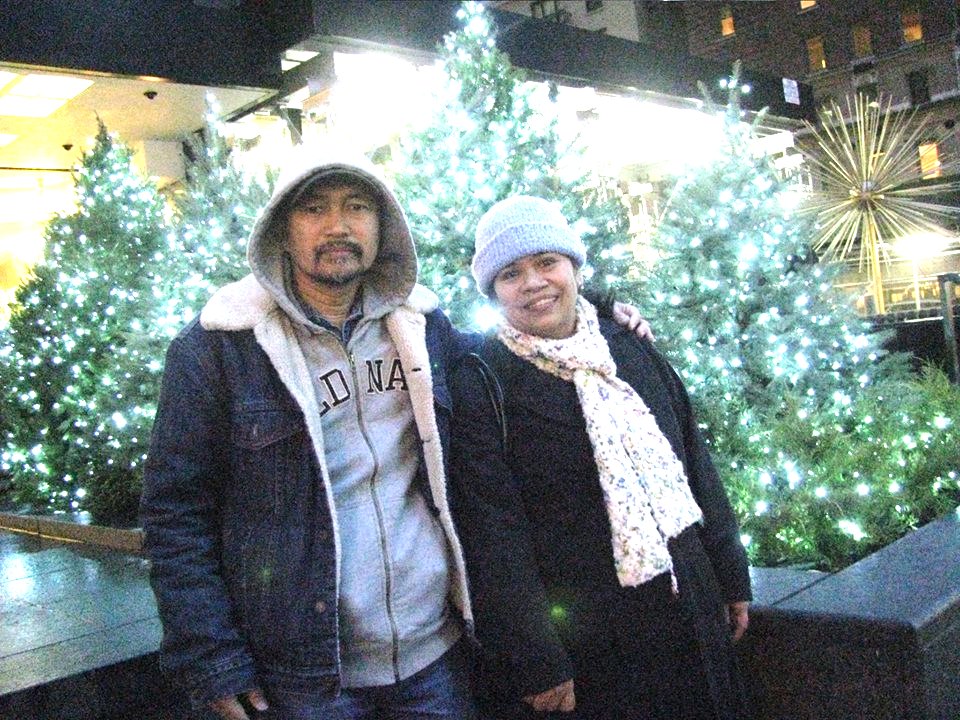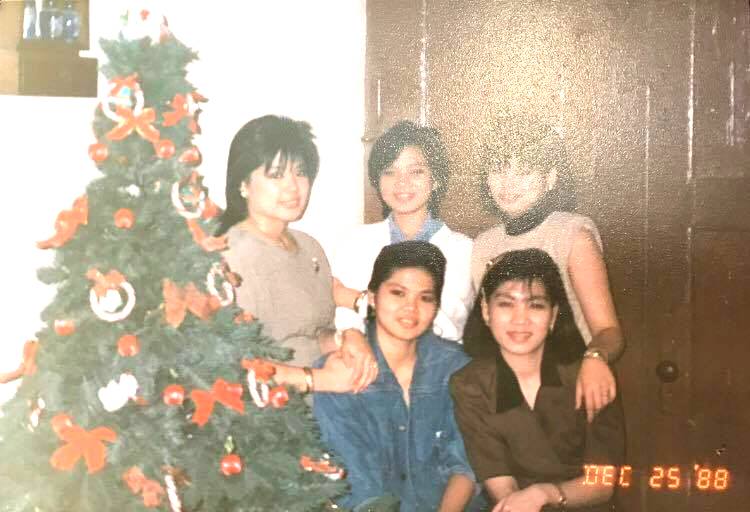They’re dreaming of a magical Christmas back home
It is -3 degrees in New York City. In Saskatoon, Canada, the coldest place in the region, it sometimes reaches -1. After a heavy snow, pavements, roofs and yards and pine trees are covered in white. Lighted fireplaces and people bundled in coats, making snowmen and playing in the snow are Christmas card scenes that many Filipinos in the Philippines have been dreaming of – a white Christmas.
But what immigrant Filipinos really long for is the warmth of Paskong Pinoy — Christmas in the Philippines, despite being with their families in North America.
What is so special with Paskong Pinoy that millions of immigrant Filipinos in “greener pastures” still miss?
Magical Christmas in the Philippines
Despite the economic difficulties, Philippines has the longest celebration of Christmas in the world, starting with the “ber” (September) months until the Feast of Three Kings on the first Sunday of January. Christmas is not complete without Jose Mari Chan’s classic Christmas songs blaring from FM stations and in malls.
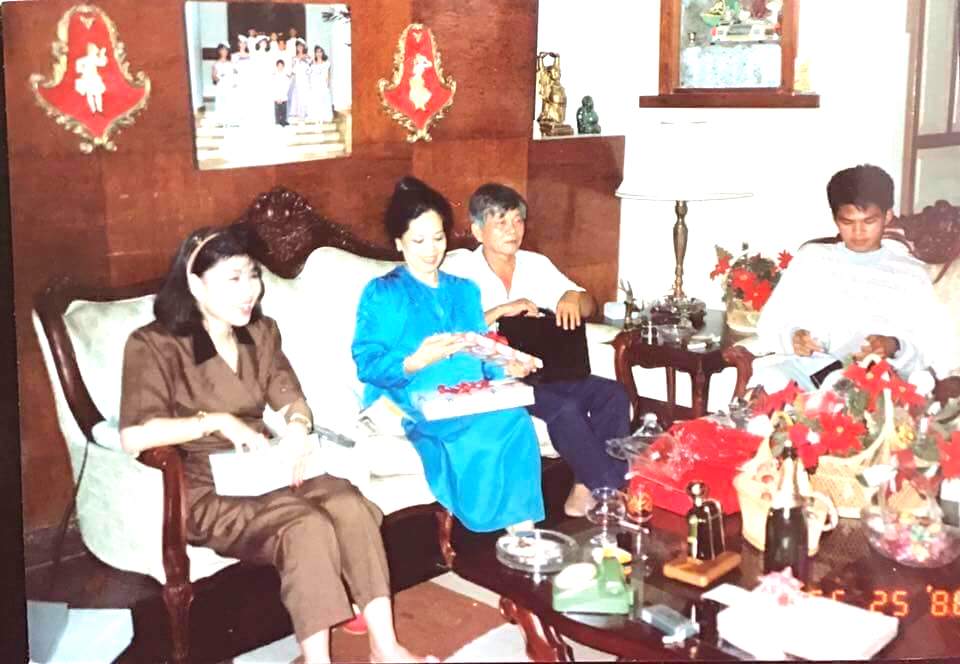
Joy Soto-Walton (in brown clothes) and family during the traditional opening of gifts back in the Philippines on Dec 25, 2008. CONTRIBUTED
Joy Soto-Walton is from a large family with nine siblings. She remembers how Villa Bacolor, her ancestral home in Pampanga, was prepped up on the first day of September and the last is decoration taken down on February 11, during the Feast of Our Lady of Lourdes.
Kirby Araullo spent many Christmases in Angeles City in Pampanga until he immigrated to California when he was a teen.
Both Kirby and Joy say that Christmas in the Philippines is incomparable with Christmas in the US because of family traditions, like the exchange of gifts, Simbang Gabi (pre-dawn Mass), Panuluyan (re-enactment of the Jesus’ birth), visiting relatives and godparents, and family reunions and Kapampangan food like duman (glutinous rice or pinipig), adobung ema (crab adobo), panara (deep-fried wonton shrimp).
“These time-honored traditions foster a deep sense of togetherness and honor the sacredness of the birth of our Savior Jesus Christ,” says Joy.
Hedy Erardo, a nurse in New York has not been home for Christmas for 11 years. She also recalls food like bibingka and puto- bumbong (rice cakes) sold along the streets of Imus, Cavite the colorful Christmas lights in the city, and the nightly caroling of children, students and organizations raising funds.
Aaron Thomas Pangilinan misses his relatives and grandmothers who raised him until his petition to Canada was approved five years ago. Noche Buena, Simbang Gabi, walking around town with friends and watching the Christmas Lanterns Parade are part of Christmases past that he never forgets.
Dr. E.J. David, a psychologist and an expert on Filipino American psychology, believes that Christmas in the Philippines is magical because Filipinos back home celebrate it extravagantly.
Despite spending a lot for gifts and parties, Filipinos are still happier because they always associate the holiday with family, school break, presents, food and Christmas songs.
“We go all out with our decorations, our religious services, our food, presents, and we celebrate it longer. Another big part of it too though, I think that for many (if not all) Filipino immigrants Christmas in the Philippines is something they experienced as younger people,” he explains.
Christmas in America
Although some Filipinos still keep the traditional Noche Buena, it is not always possible due high demand for workers during the holidays. Distance between family members and relatives also make their holidays less festive.
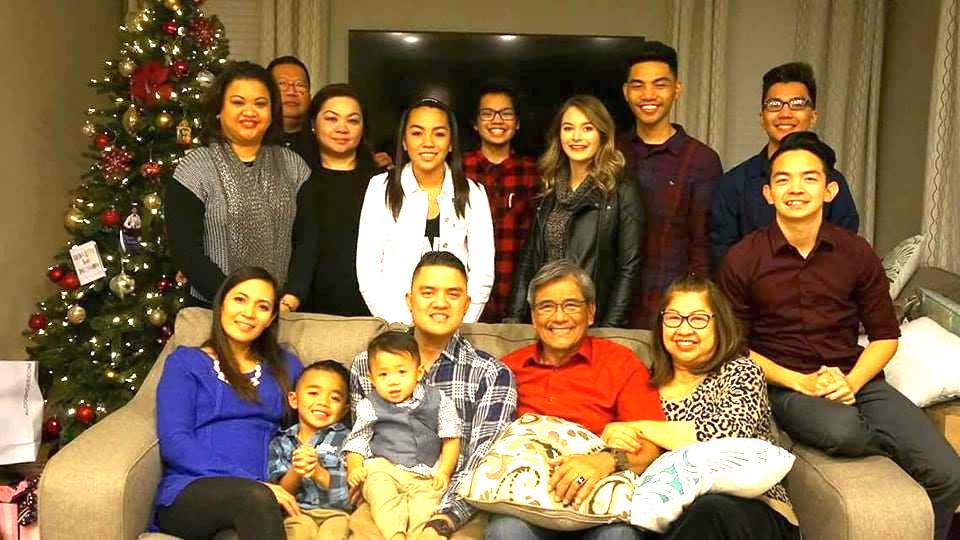
Kirby Araullo (right, seated on the armchair) and his family and relatives in Las Vegas, Christmas 2015. CONTRIBUTED
Gloria Pangilinan of New Jersey, will spend Christmas with relatives to feel the Paskong Pinoy. Her daughter is a nurse and cannot file a leave while her two children are in the Philippines. She hopes to celebrate Christmas next year in the Philippines with her family complete.
With family members scattered in different states and countries, Kirby wishes to celebrate the holidays with them to share festive Kapampangan dishes. Since their father died in 2014, the Soto siblings in the Bay Area replicate their Christmas traditions sans “Kapampangan gastronomic pleasures.”
Hedy and husband, Darius, with their son, Daniel. will celebrate Christmas together after attending the Church service on the 24th. Two of the Erardo siblings are in Canada and one is in the Philippines.
“The Joy of Christmas is not the festivity but the thought that a Savior was born to give hope and to redeem, that is what matters; it’s really more on the celebration of heart and soul,” says Hedy.
When “Simbang Gabi” started on December 16, Aaron and his brothers braved the freezing cold, and they will do it every night. Simbang Gabi in Saskatoon, Canada started at 7:00 p.m. on the 15th and ends on the 23rd. Aaron leads the congregation in singing during the Mass. Their parents cannot join because of work.
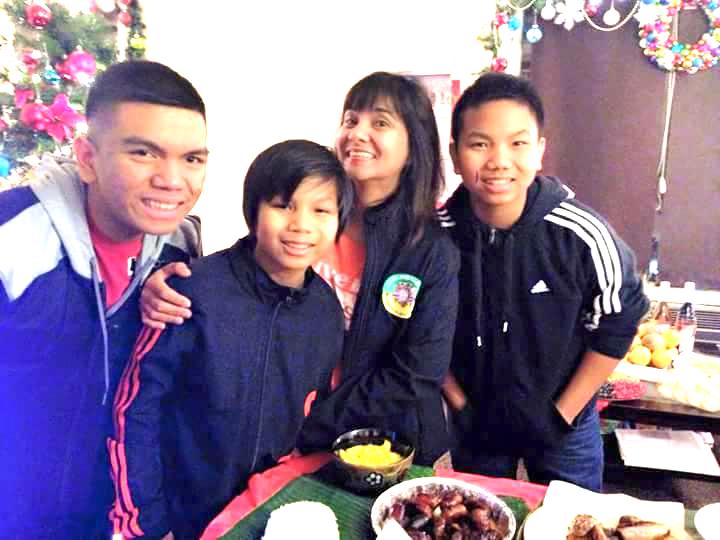
Aaron, Thomas Gabriel, mom, Nora and Val on December 25, 2015, their second Christmas in Canada. CONTRIBUTED
Dr. David believes that bringing Filipino traditions like Simbang Gabi and Noche Buena to their adopted country is natural because these remind them of happier times in the Philippines.
“Christmas becomes a part of people’s foundational life experience that shaped who they are now. It’s almost like a first love — it’s so foundational and influential that you remember it forever, for the good and the bad,” he explains.
Dr. David’s latest book, We Have Not Stopped Trembling Yet: Letters to My Filipino-Athabascan Family published by SUNY Press will be available in February 2018. It is about personal struggles, insecurities and anxieties as Filipino-American immigrants.

